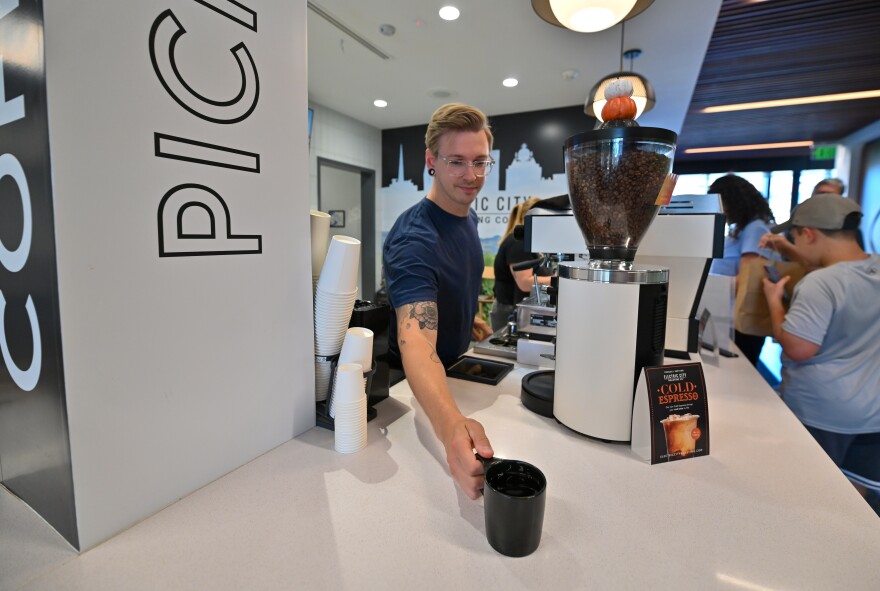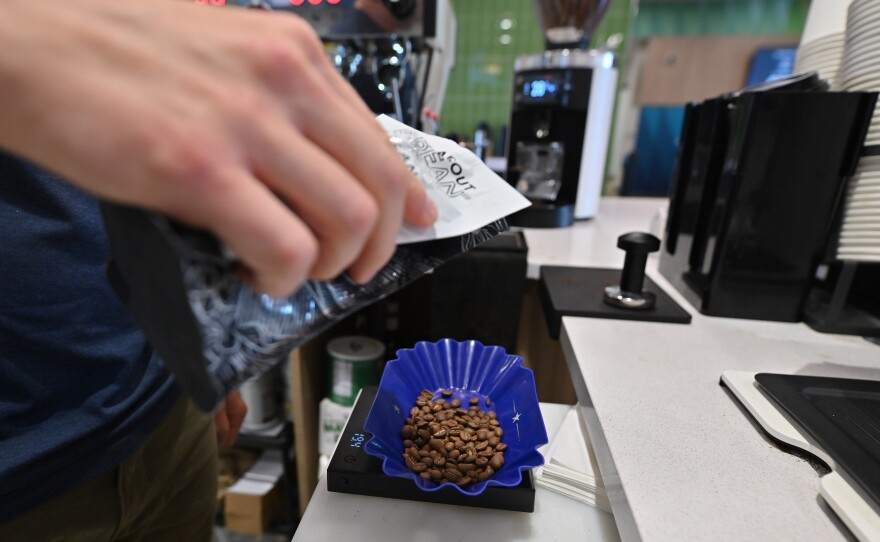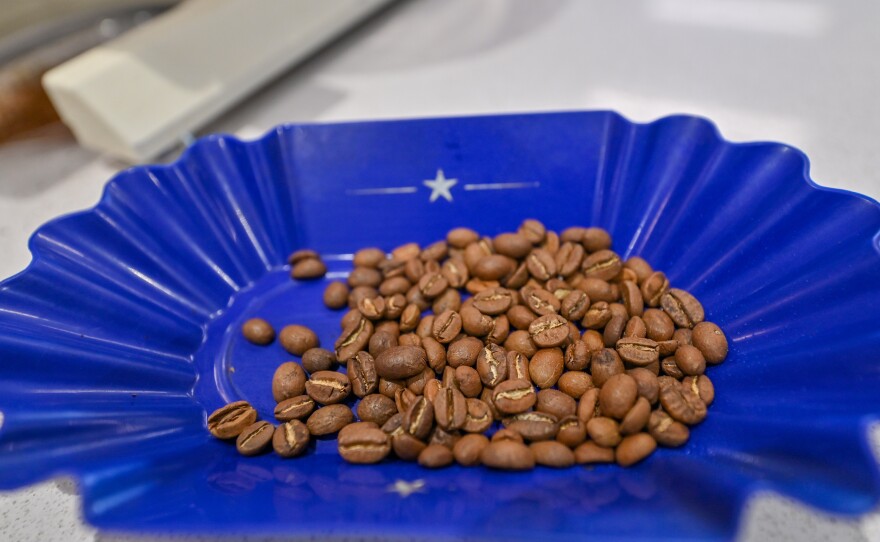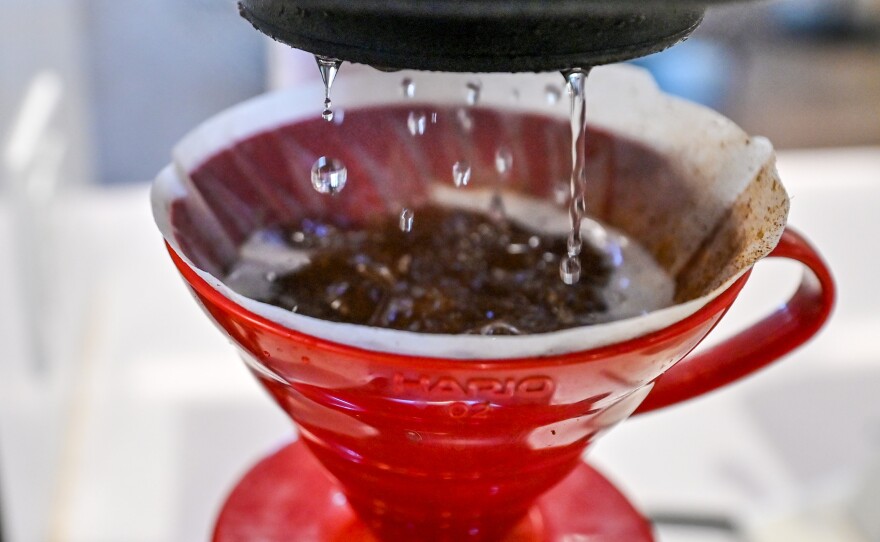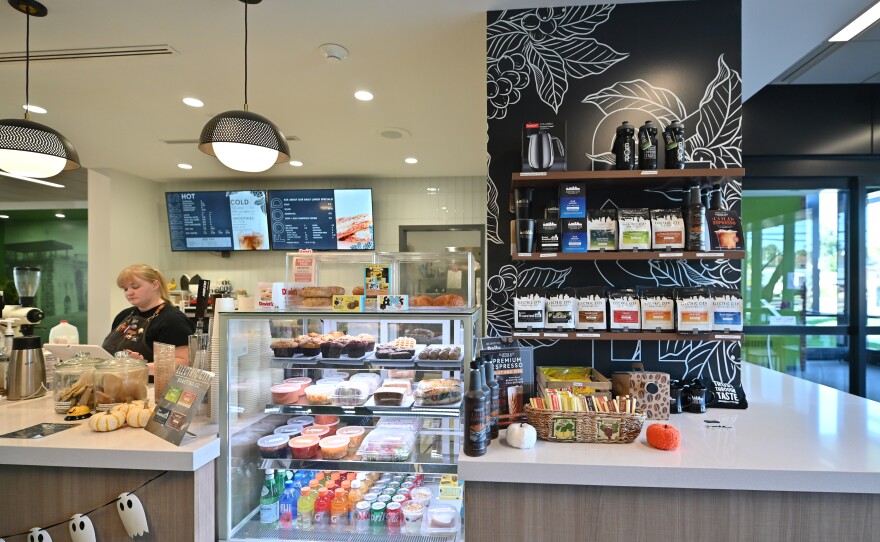Mary Tellie searches the world for coffee, and then brews a cup in Northeast Pennsylvania. The founder of Electric City Roasting Co. visits farms near the Equator and knows the stories of the men and women who grow and harvest the beans.
Record-high coffee prices, coupled with new tariffs, have Tellie and other roasters and coffee shop owners wondering what might be brewing next.
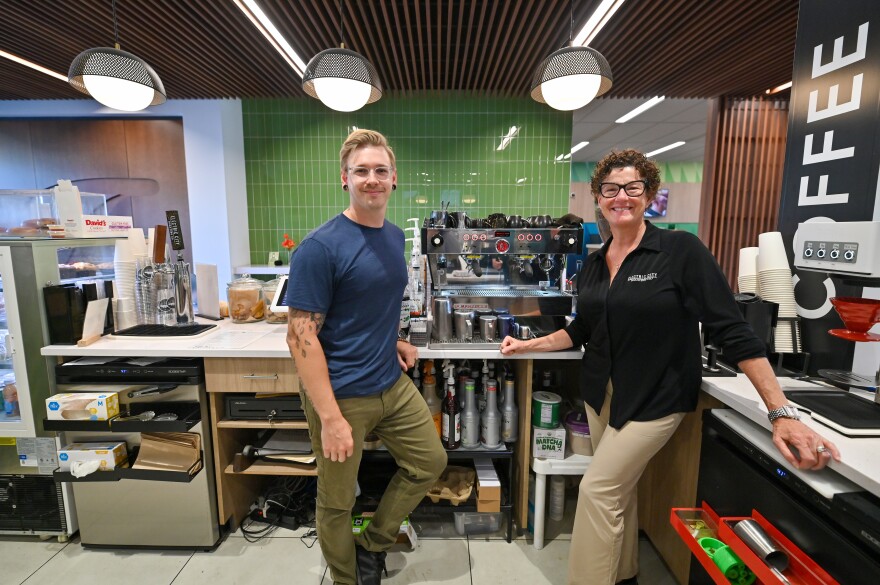
“It might be tariffs right now, and in five years from now, it might be something else we never even thought of,” Tellie said from the company’s coffee shop at Fidelity Bank in Dunmore. “But for right now, we're dealing with tariffs, and we really can't control that. … We're not any different than any other coffee company right now experiencing a whole world of uncertainty and hurt, and we're trying to pedal through it like everyone else.”
Coffee reached $8.87 per pound in August, according to U.S. Bureau of Labor Statistics data — a 40% increase from a year ago.
Brazil, the world’s top producer of coffee, had crops “devastated” due to drought, leading to a much smaller harvest. Volatile weather also impacted coffee from Vietnam, the second-highest producer. That drove prices up worldwide.
Tariffs imposed by the Trump Administration further impact the cost of coffee. The administration imposed a 50% tariff on goods from Brazil, and 20% from Vietnam. Colombia, the third largest producer of coffee, has a 10% tariff. The tariff fees are paid by the importer, with the cost passed along to the roaster or coffee shop.
Rising costs of coffee, other items at local shops
Grateful Roast brews coffee at cafes in Clarks Summit and Nanticoke. Owner Brian Williams traveled to Brazil to visit producers about a month before the tariffs took effect.
“I can't even buy their coffee because the price is just completely cost-prohibitive,” he said this week. “I wouldn't be able to roast and sell the coffee at the proper margin that I would need to charge to be able to recoup what I need to recoup. … It affects us greatly, because now my largest partner is now unavailable to me.”
Williams also works directly with a farm in Colombia and is looking for ways to absorb cost increases.
“We're always going to price our coffee based on the margin that we need to charge to be sustainable. So if, if our prices go up, then naturally, the price for coffee goes up,” he said. “What we're trying to do is mitigate that increase, though, by offering different sizes, not carrying as (many) varieties, focusing on our core lineup.”
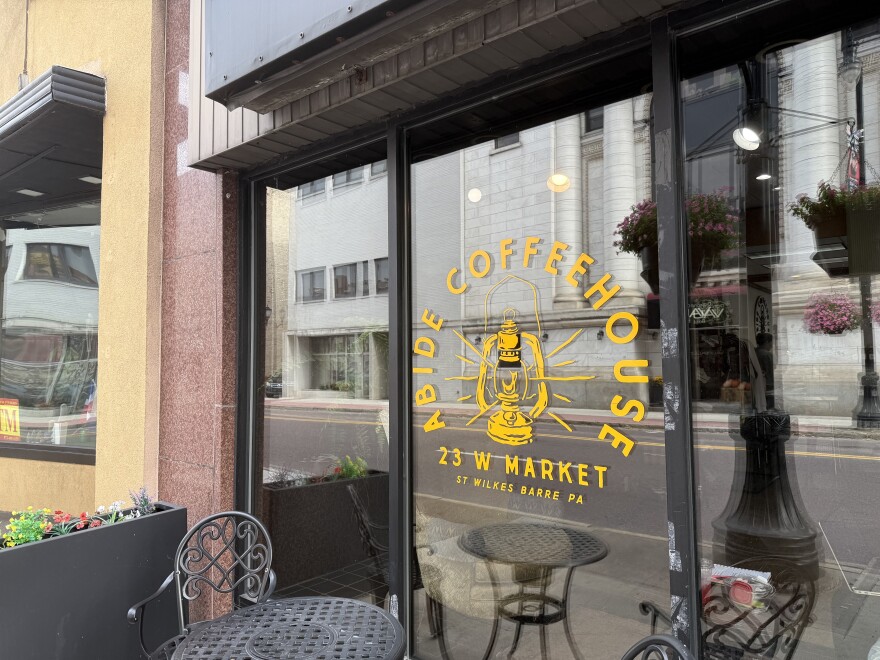
A barista brewed coffee and steamed milk at Abide Coffeehouse on Tuesday morning.
The Wilkes-Barre shop raised prices about 25-cents per cup a month ago.
“We try to hold off price increases as much as we possibly can. But it does come to a point where we have to raise,” co-owner Dan Shission said. “You have all the extra sugars and the syrups and all that stuff creeps up 2 ,3, 4 cents … But if a cup increases a penny, and the syrup increases a penny, and this increases three cents, all of a sudden it catches up.”
At Brewskis Coffee and Bar in Bloomsburg, proprietor Justin Hummel also sees higher costs in more than coffee, from his electricity bill to the cost of the aluminum cans of the beer he also sells.
“I’ve seen my prices go up about 10.5% since the beginning of this year,” he said.
'Everyone's feeling it'
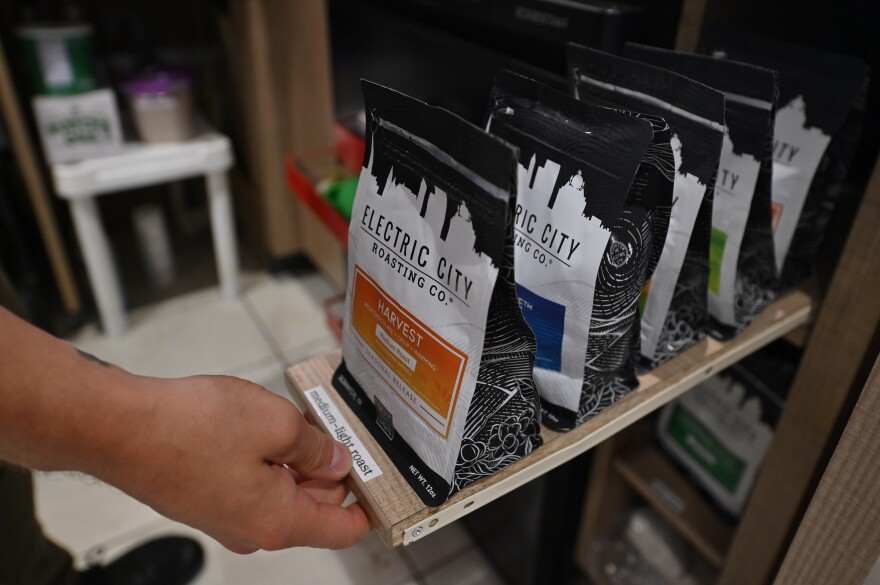
Kyle Mervau oversees coffee shop operations for Electric City Roasting. The grinder hummed as he prepared a cup of coffee this week.
Mervau teaches the baristas that they are the last stop on a long supply chain which starts at a farm and ends as they serve a cup of coffee that should be worthy of the journey.
The company’s signature blend, Blue Moose, combines beans from South and Central America. Costs went up 18% on the coffee this year, due to seasonal impact. With the tariffs, the cost to the company is up an additional 20% on top of that.
“The easiest thing we could do is actually start buying less quality coffee,” Mervau said.
But that’s not an option. Neither is ending relationships with farmers Tellie has worked with throughout her 22 years in the coffee industry, even in countries with higher tariffs.
“The tariffs could come and go. I don't want to say to a country like Brazil and our friends down there, ‘Oh, sorry, we're not buying coffee from you right now.’ Like, how am I going to do that?” Tellie said. “But at the same time, I'm not going to turn around and say, ‘Oh, by the way, here's an $8 cup of coffee.’”
Knowing that not everyone can afford to spend $5 or $6 a day on a coffee drink, the company created products, such as ready-to-drink cold espresso, to enjoy at home.
“Everyone's feeling it,” Tellie said. “And we are not in this boat alone.”

